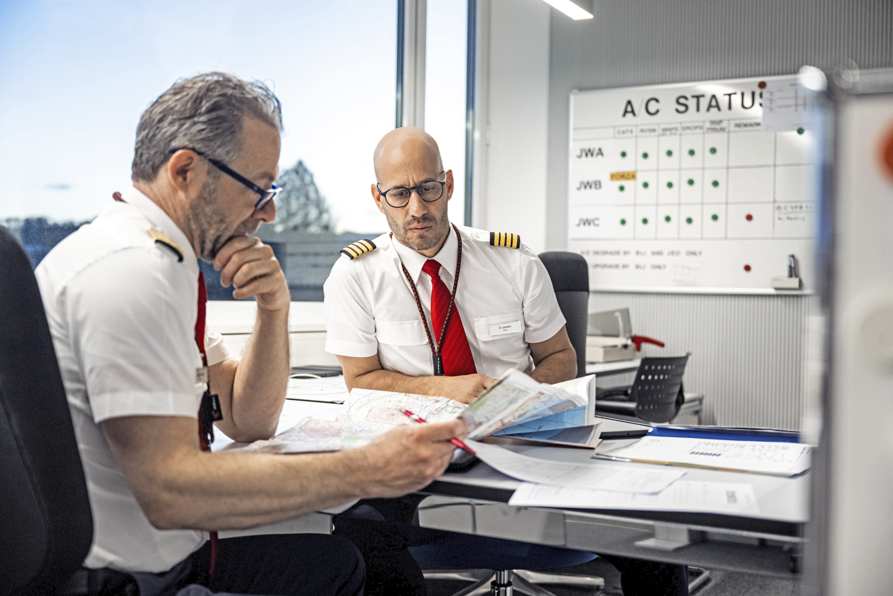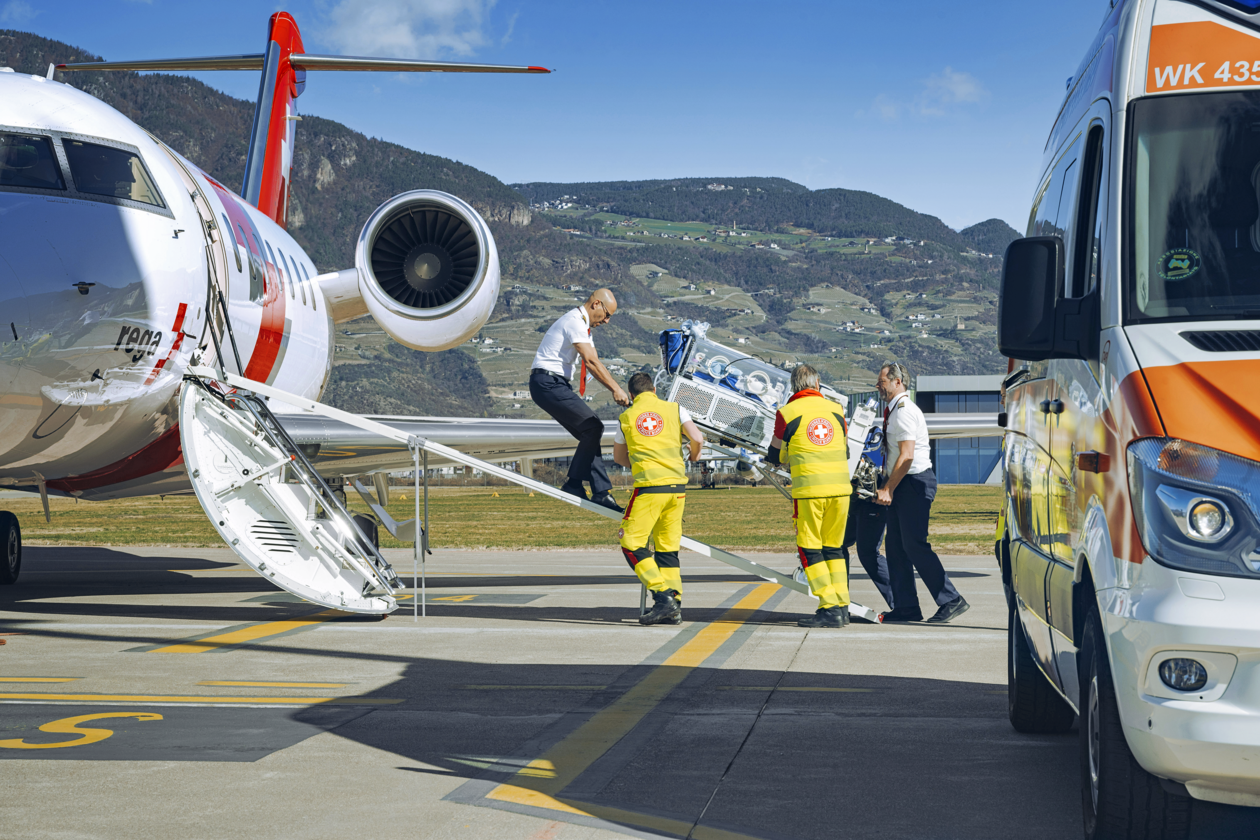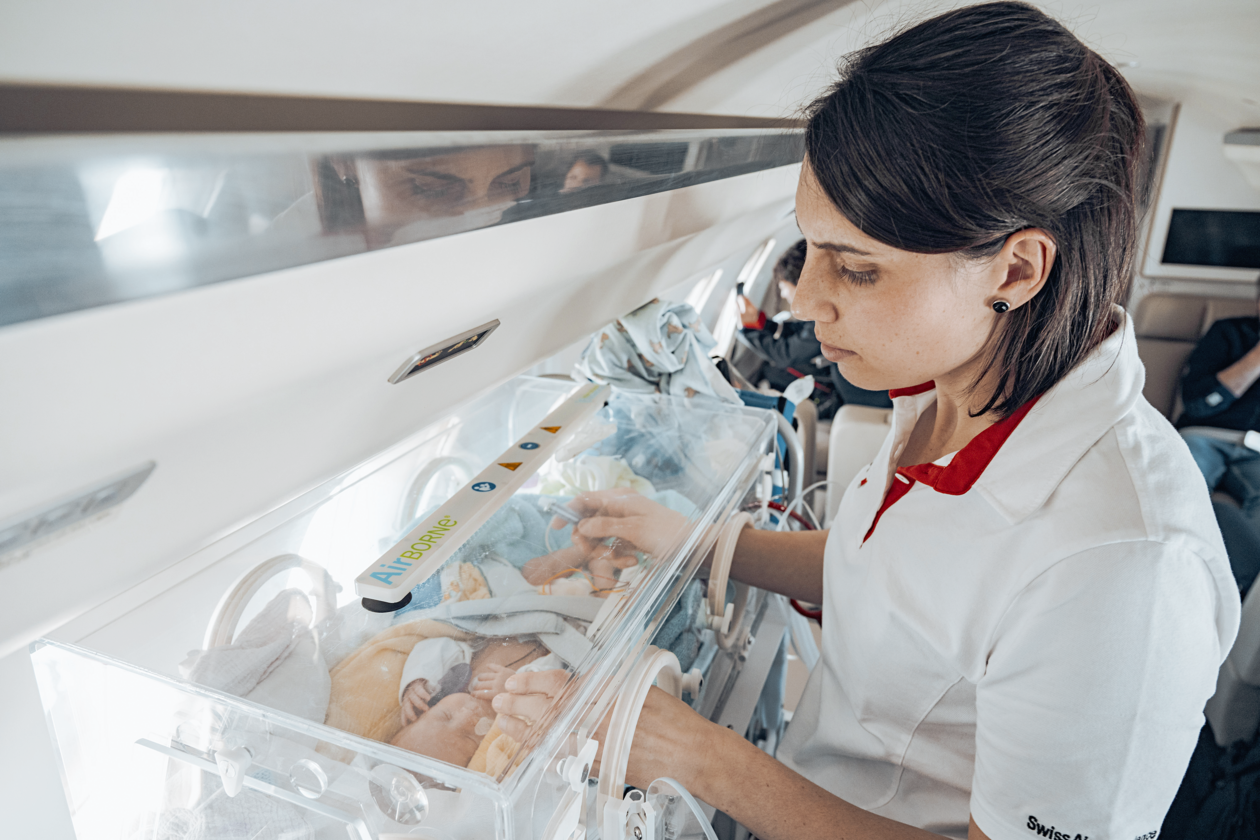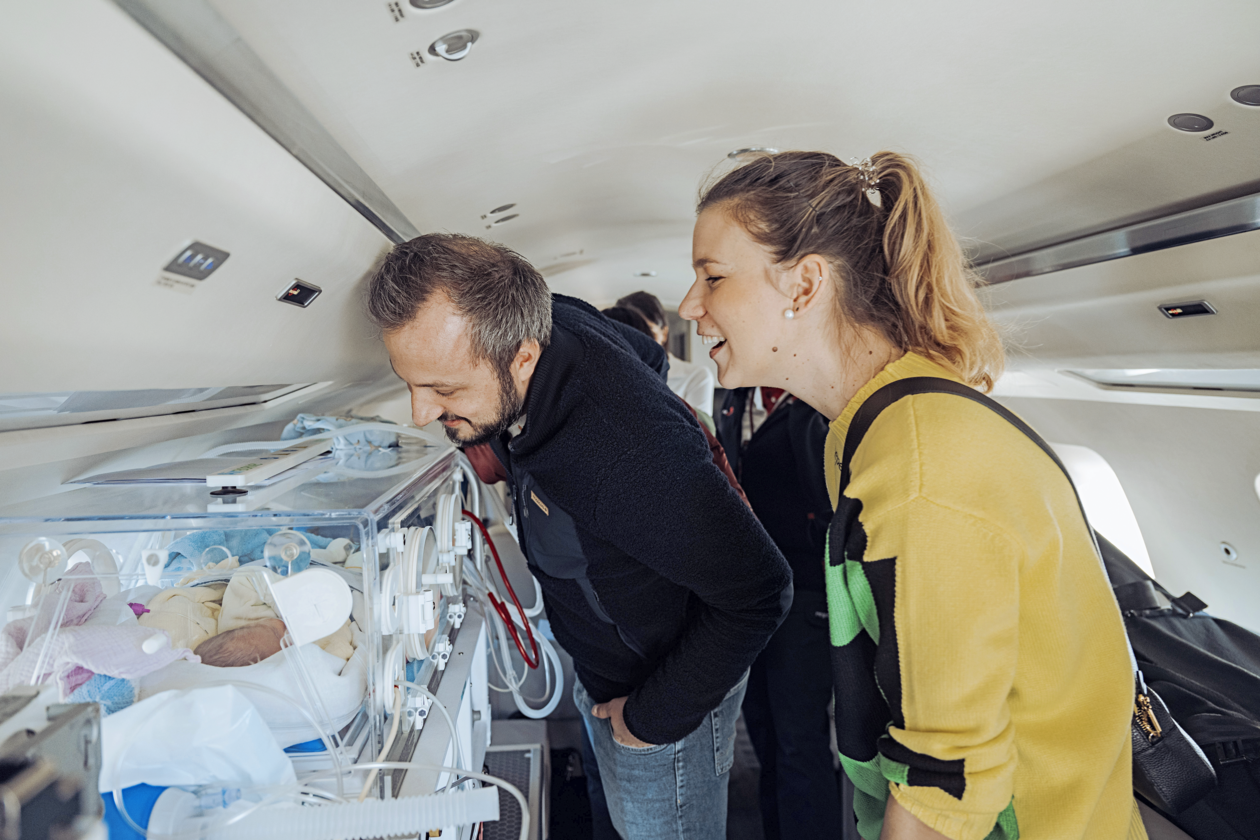While on holiday in Alta Badia (Italy), pregnant Anna complains of sudden discomfort, then her condition deteriorates dramatically. The local doctors diagnose preeclampsia. Baby Emilio sees the light of day in the hospital in Bolzano after an emergency caesarean section in the 29th week of pregnancy. He weighs just over 1,400 grams.
Extensive clarifications at the Operations Centre
Just over five weeks later, the time has come: the little boy is strong enough to fly home in Rega’s ambulance jet. Already early in the morning, the crew are preparing for this mission at the Rega Centre at Zurich Airport. Inside the ambulance jet, pilots Daniel Landert and Roland Oberholzer help intensive care nurse Erika Keller to secure the transport incubator. But the preparations for Emilio’s repatriation had actually begun much earlier. For several weeks, the medical consultants and flight coordinators at the Rega Operations Centre had been in contact with the attending doctors in Italy, as well as with Emilio’s parents, in order to determine whether the tiny patient’s state of health would allow him to be transported back home, and if so, when the return flight would be sensible.
Immediately after birth, Emilio would not have been ready for his first big journey across the Alps. The tissues in his tiny body and his organs would not have been able to cope with the stresses and strains of transportation. But with each day in the neonatal intensive care unit, he had grown increasingly stronger and was now finally fit enough to fly.
Taking off for Bolzano
One hour before takeoff at Zurich Airport, the jet crew meet with the flight coordinator for a briefing. On this occasion, the crew is larger than usual. Dr Corinne Däster and Fiona Lercher from the neonatology department at Aarau Cantonal Hospital (KSA) are accompany ing the Rega mission as additional specialists. The crew is briefed and the jet is ready for take off. In Italy, too, everyone is informed about the mission, and the Rega flight coordinator has organised ground transport from Bolzano Airport to and from the hospital. Now there is nothing standing in the way of departure.



